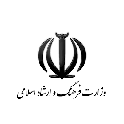چکیده:
فرهنگ جهادی زاییدة تفکرات نوین دینی قرن بیستم در جامعة اسلامی ایران است که از بالندگی لازم برای تحقق آرمانهای نشئتگرفته از سیاستهای کلی و نوین نظام اداری کشور برخوردار است؛ از این رو، مقالة پیشِ رو، با علم به وضعیت نامطلوب بهرهوری کارمندان در بخش دولتی و ضعف اخلاق کاری به عنوان زیربنای توسعة سازمانی و اجتماعی، اثراتی که فرهنگ جهادی بر بهرهوری کارکنان غیر هیئت علمی دانشگاه ایلام میتواند داشته باشد را با لحاظ نمودن نقش میانجی اخلاق کار اسلامی بررسی کرده است. این تحقیق، از نظر هدف، کاربردی، از نظر شیوة جمعآوری دادهها، پیمایشی - همبستگی و به طور مشخص بر مدلیابی معادلات ساختاری استوار است. ابزار اصلی جمعآوری دادهها، پرسشنامههای استاندارد بود. جامعة آماری پژوهش نیز کلیة کارکنان دانشگاه ایلام به تعداد 225 نفر را شامل میشد که با بهرهگیری از فرمول کوکران تعداد 142 نفر به روش تصادفی ساده انتخاب شدند. نتایج تحقیق ضمن تأیید مدل مفهومی نشان داد که فرهنگ جهادی و ابعاد آن؛ یعنی فرهنگ تعهدمحور، دانشمحور و راهبردمحور بر بهرهوری نیروی انسانی، تأثیر معنادار و مثبتی دارد؛ همچنین تأثیر معنادار و مثبت فرهنگ جهادی بر اخلاق کار اسلامی و اخلاق کار اسلامی بر بهرهوری نیروی انسانی تأیید شد. در نهایت مشخص گردید اخلاق کار اسلامی در رابطة بین فرهنگ جهادی و بهرهوری نیروی انسانی نقش میانجی دارد.
The jihadist culture is the birthplace of the modern twentieth-century Islamic thought in the Islamic society of Iran, which has the necessary vitality to fulfill the aspirations arising from the general and modern policies of the country's administrative system. The current article, with the knowledge of the unfavorable state of affairs of the public sector employees and the weakness of work ethics as the basis for organizational and social development, the possible effects of jihadi culture on the productivity of non-faculty staff of the University of Ilam has been studied, taking into account the mediating role of Islamic work ethic. Research is specifically based on the modeling of structural equations. The main tools for collecting data are standard questionnaires. The statistical population of this study was 225 employees of Ilam University. Using Cochran formula, 142 people were selected by simple random sampling method. The results of the research, while confirming the conceptual model of the research, showed that the jihadi culture and its dimensions have a significant and positive effect on the productivity of human resources, a commitment-oriented, knowledge-based, and focused strategy. The significant and positive effects of jihadi culture on Islamic work ethic and Islamic work ethic have been confirmed on human resource productivity. Finally, it was determined that Islamic work ethic has a mediating role in the relation between jihadi culture and human resource productivity.

(پژوهیار,
,
,
)

